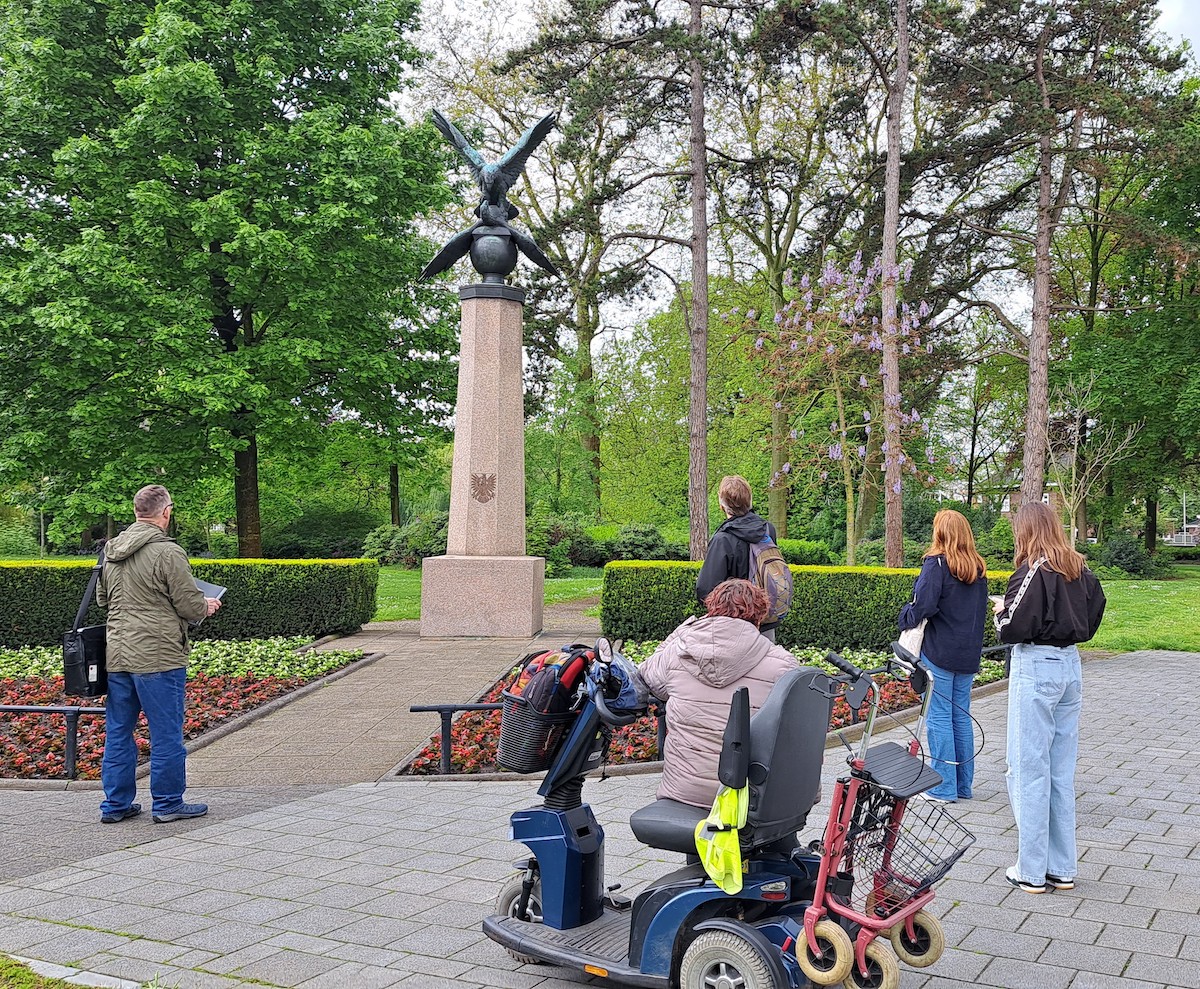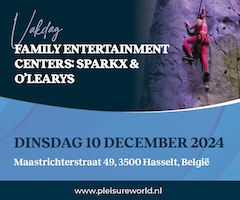Inclusive education towards more sensitive leisure managers
Developing new skills through cooperation with experience experts
.jpg)
BUas sees working towards a more inclusive leisure sector as an important challenge, which needs to be tackled together with representatives of the sector itself. A key requirement for that to be successful is that when designing for leisure practices and facilities, students (and lecturers!) need to look beyond personal preferences (what you like is not necessarily good for everyone), beyond their own physical, sensory or intellectual abilities (what you are capable of doing - seeing - understanding might be inaccessible to others) and their financial capacity (some people might have less - or no - money to spend on leisure). Doing so means to recognise and acknowledge diverse perspectives, backgrounds, motives and possibilities.
Peter Horsten and Marco van Leeuwen are lecturers and researchers at Academy for Leisure & Events. Yvonne Vermetten is Education and Quality Care Advisor at Breda University of Applied Sciences.
Over the past few years, we have conducted numerous projects focused on the accessibility of leisure with students from various educational programmes of the Academy for Leisure & Events. One of the easiest approaches to these kinds of projects, especially when it involves investigating accessibility for a particular group, is simulation. That is exactly what a well-intentioned group of students did in one of their projects: they visited a theme park, taking turns sitting in a wheelchair to test the accessibility of various attractions. This was a very educational experience, which resulted in important recommendations for the park about barriers to accessibility.
Meaning well, wanting to empathise and engage in (in this case quite literal) perspective-taking are incredibly important first steps in optimising accessibility of leisure. However, our claim is that to do this research properly, we need to go further by involving experience experts as participants: in this case, that would mean involving people who actually need wheelchairs, who live with and in them every day. There are two key reasons for this. Firstly, they can provide much more detail about what the real challenges are (as opposed to what able-bodied students in a novel situation notice at a first glance), which issues need to be prioritised and which apparent problems might be less prominent (since they can already be solved through wheelchair users’ practice-honed coping strategies and clever workarounds). Secondly, it is morally right to involve those whom it concerns in the analysis of problems and the design of solutions.
Doubts about simulations
Several studies support our claim. A literature study by Keers, Felten and Harnacke (2021) offers a broad view of effective methods in reducing prejudice against people with physical disabilities. Supporting our point are the studies they cite on the possible opposite effects of interventions in which people without disabilities simulate what it is like to have a disability. Matera et al. (2021) had 11-to-17-year-olds do an experiment in perspective-taking by moving around in a wheelchair. One group did this together with someone who is always in a wheelchair; the other group consisted only of non-disabled people. They found that amongst the members of the group with someone in a wheelchair, prejudices decreased. This was not the case with the other group. This suggests that for substantial attitudinal change, it is essential that people without disabilities should learn about the real experiences of people with disabilities.
Merely putting yourself in the position of someone who is different might mean projecting your own feelings onto that other person.
Nario-Redmond, Gospodinov and Cobb (2017) also describe that by temporarily mimicking a disability, what is imitated is only what it is like not to be able to do something; the brief immersion of an experiment does not automatically unlock insight into any coping strategies and workarounds that people have developed to deal with their disability. Mackenzie & Scully (2007) make an even stronger claim. They state that trying to empathise with the situation of people with physical disabilities is not real empathy. A common misconception amongst people without a physical disability is that people with a physical disability have a much lower quality of life than non-disabled people. Having functional legs to walk with, and imagining the problems one might encounter if that were no longer the case, can distort the understanding of what it means to be physically disabled. Putting yourself in the situation of someone with a physical disability, either through imagining or through temporary experiences like the theme park wheelchair experiment, comes with the risk of projecting your own feelings and assumptions onto the other person. It does not give you complete knowledge of what it is actually like to live with that disability.
The inability to achieve ‘true’ empathy through simulation is good since empathy should not actually be the intended end goal of educational intervention. Etymologically, empathy is related to sympathy. Sympathy is possibly the least helpful feeling to have towards people with disabilities, since it involves feeling pity for someone who is in a bad state or situation. Feeling empathy means to imagine what it must be like for someone to be in that situation. That is more respectful, but difficult or perhaps even impossible to achieve, due to the principal inability to gain full knowledge of a situation you are not actually in yourself. Whether access to privileged knowledge is quite so exclusive can certainly be doubted - we certainly do not want to be such identitarian hardliners, as do Keers, Felten & Harnacke (2021). They still see it as valuable to promote empathy by encouraging people without disabilities to listen to the experiences of people with disabilities, even via simulation experiments (provided that disabled experience experts participate). However, beyond empathy lies compassion: without needing experiences or insights between non-disabled and disabled people to match exactly, we try our best to understand the other’s position, we feel along (com-passion) with their plight because we want to help solve the problem. The magic ingredient in all of this is co-creation: working together in an equal partnership of able-bodied and disabled people, to learn from each other and to find the most effective solutions.
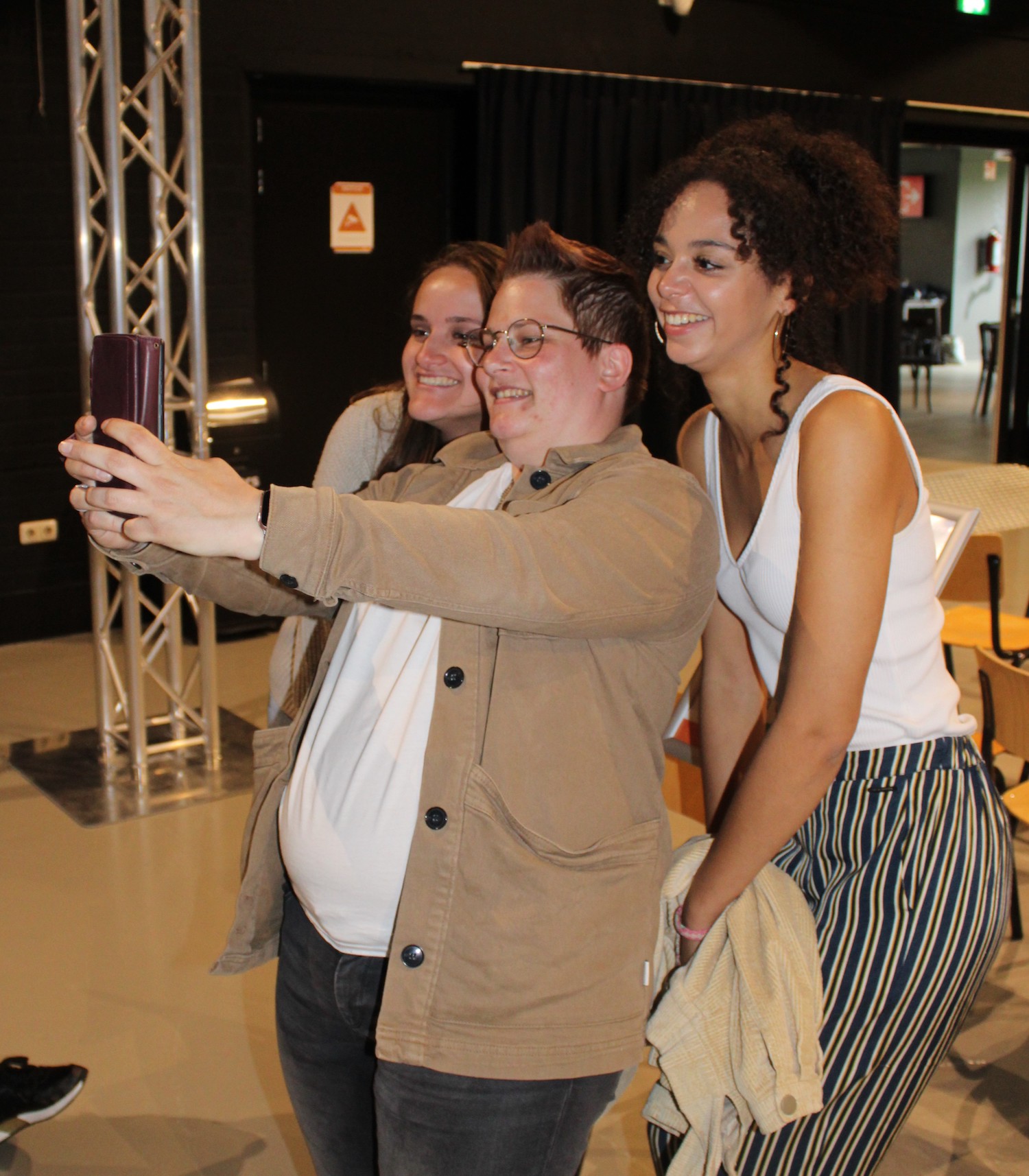
Co-creation with experience experts
Using these insights, we aim to make the leisure sector more accessible and inclusive, and our strategy to do this in the most robust fashion is via a bottom-up approach: by educating the next generation of leisure professionals. By having students solve accessibility challenges while working together with experience experts, we teach them to incorporate basic principles of accessibility and inclusion in whatever they do throughout their professional careers in the leisure sector.
The aim is to move beyond exclusive solutions (e.g. a separate entrance to a festival terrain for people in wheelchairs), and instead incorporate fully inclusive solutions, such as design-for-all and universal design (e.g. an entrance to a festival terrain that is accessible to everyone). This transition also requires students to stop seeing people with disabilities as clients or curiosities, but rather as equal partners in fully co-creative design processes. Leisure professionals thus transition from designing solutions for people with disabilities, towards working with them, and finding solutions (co)designed by them.
We have done this through research and design projects aimed at leisure experiences: visits to museums, theme parks, attractions and performances, together with experience experts. Using a customer journey research approach, we analyse the fits and misfits of these leisure experience touchpoints for people with disabilities. Based on this, experienced experts co-designed practical recommendations together with BUas students.
Based on our experiences, we feel confident in saying that this needs to be an integral part of BUas education. By doing inclusive joint projects, we can educate more capable, sensitive future professionals. Perhaps it should be the standard that each and every student has at least one experience, during their studies, with experience experts. This also implies that every lecturer should have had at least one experience with experience experts in order to be better prepared for inclusive education.
Each and every student needs to have at least one experience with experience experts.
This is about more than merely people with disabilities. BUas’ policies about Internationalisation@home and Education+ acknowledge that our community (including students, lecturers, support staff, and industry contacts) is very diverse: it includes people from all walks of life, from dozens of nationalities and cultural backgrounds, different preferences and personalities, different identities and interaction styles. All participants working together in projects or commissioned assignments will encounter differences. Teaching students to work together with people with disabilities is one way of honing their skills in dealing with difference and diversity in a respectful, effective and compassionate way.
Developing skills and competences
But: does this approach to education design really improve attitudes, knowledge and compassion of students about accessibility and inclusion? Does it make them more sensitive leisure professionals? What is it that students pick up on when they do not follow a preset project design, but are challenged to co-create the project (all of it: methods design, the actual implementation, reports and presentations about the outcomes) together with experience experts? In most of our projects, we work with people with a mild cognitive disability, associated with the advocacy organisation LFB. BUas students were thus forced, for instance, to address issues in communication: how do you share your ideas in accessible language? How do you negotiate about needs and expectations, and how do you ensure that the project planning, organisation and execution is inclusive of and respectful to all participants?
For the first projects, we administered a survey for our students to complete prior to the collaboration with the experience experts as well as after the project. The survey involved a self-evaluation of the students’ competences on 13 learning goals. The learning goals were based partly on theory on intercultural competence and partly on prior experiences with the target group. We used Fink's (2013) taxonomy of learning goals to make the following distinctions:
- Understanding (knowledge of and insight into the target group);
- Application and Integration (linking experiences during the project to theory);
- Human dimension (working as equals, adapting communication);
- Caring (seeing the value of working together);
- Learning how to learn (being flexible, being able to reflect and improving oneself).
In addition to the survey, we collected statements about the students’ experiences and insights.
The first outcomes tell us that personal growth was experienced especially in terms of insight into the behaviour of the target group, and in applying that knowledge to adapt to the needs of that group.
Secondly, the students already rated themselves comparatively highly on reflective ability and respectful attitude at the start of the projects, but they reported an increase in how they valued working with the target group. "I noticed that different individuals can have a completely different experience when being in the same (or comparable) situation,” one student said. "I learned to ask questions and listen to this target group. And that they actually like it when you ask them about how you can do better for them," said another.
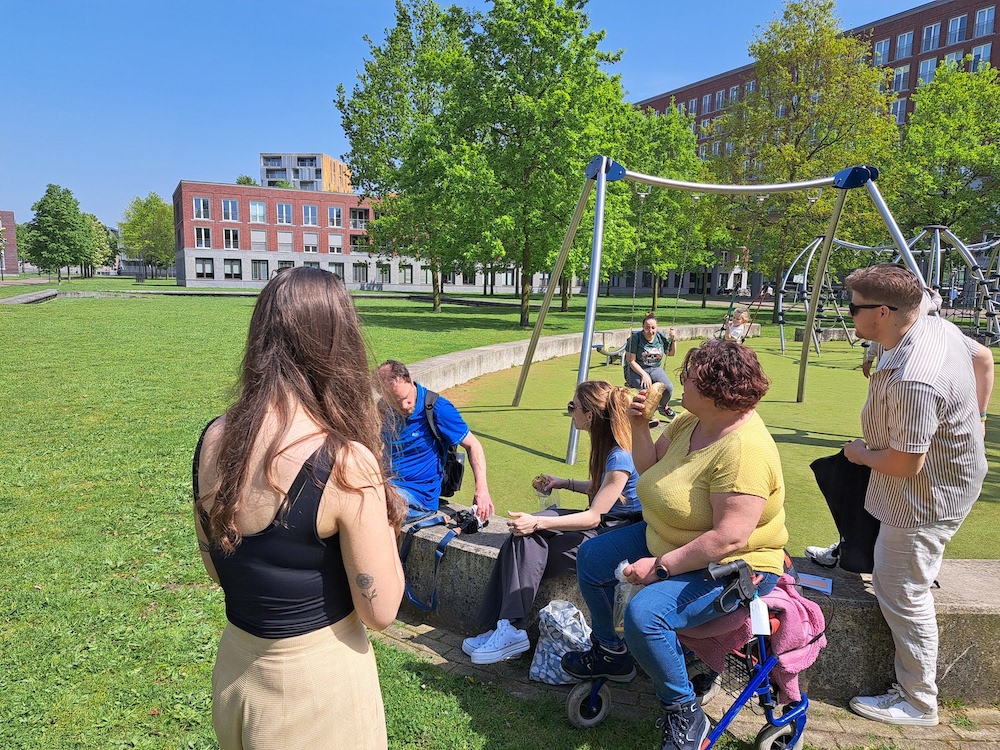
One of the students, interestingly, cited lower scores at the end of the project than at the beginning, for ‘working with the target group as equals', 'responding to problems', and 'adapting communication'. This can be understood as a development from unconscious incompetence to conscious incompetence, which is natural when normal ways of working break down, but it is still unclear what would be more effective. Figuring out how to adapt to the needs of experience experts can make a student go through such phases of (hopefully temporary) conscious incompetence, for instance when one of the students said that "(…) the project group and I quickly noticed the language barrier. We often use too difficult or English language.” Becoming aware of this challenge had value for the student in question, as evidenced by a much improved score on ‘value of the collaboration’ at the end of the project.
It is striking that, in addition to comprehensibility, everyone sees transparent communication as an important learning point. Clarifying mutual expectations and adhering to agreements turn out to be essential and go wrong remarkably quickly with students, for instance because other coursework is given priority, or simply a lack of recognised urgency (disregarding the need, by experience experts, for sufficient preparation time, and instead making arrangements or delivering materials at the last minute).
For example, at the start of the project about the Maczek Memorial (see Uncover p.72), students took sufficient time to coordinate the various responsibilities and tasks, to include everyone's insights and to actually allow the experience experts the time to process information and deliver their work. However, towards the end of the project, while analysing the data and designing the presentation for the commissioner, the BUas students experienced time pressure, which caused them to rush their work, resulting in superficial products, and insufficient time for everyone to participate properly. This meant that LFB's experience experts did not feel heard and were not able to make an equal contribution to the final presentation for the commissioner. "I had indicated several times that we wanted to raise our points in an interview," said an experience expert, "I didn’t feel engaged in that part of the process.” The students were, at the time, unaware of this; they rushed to finish the presentation slides, and in an attempt to involve the experience experts, produced a few cards with notes immediately prior to the presentation, in effect asking the experience experts to improvise on the spot. In a time crunch, for the typical BUas student, this might have been an understandable, and usually effective strategy to produce something of value for the commissioner, but for the experience experts this did not work at all.
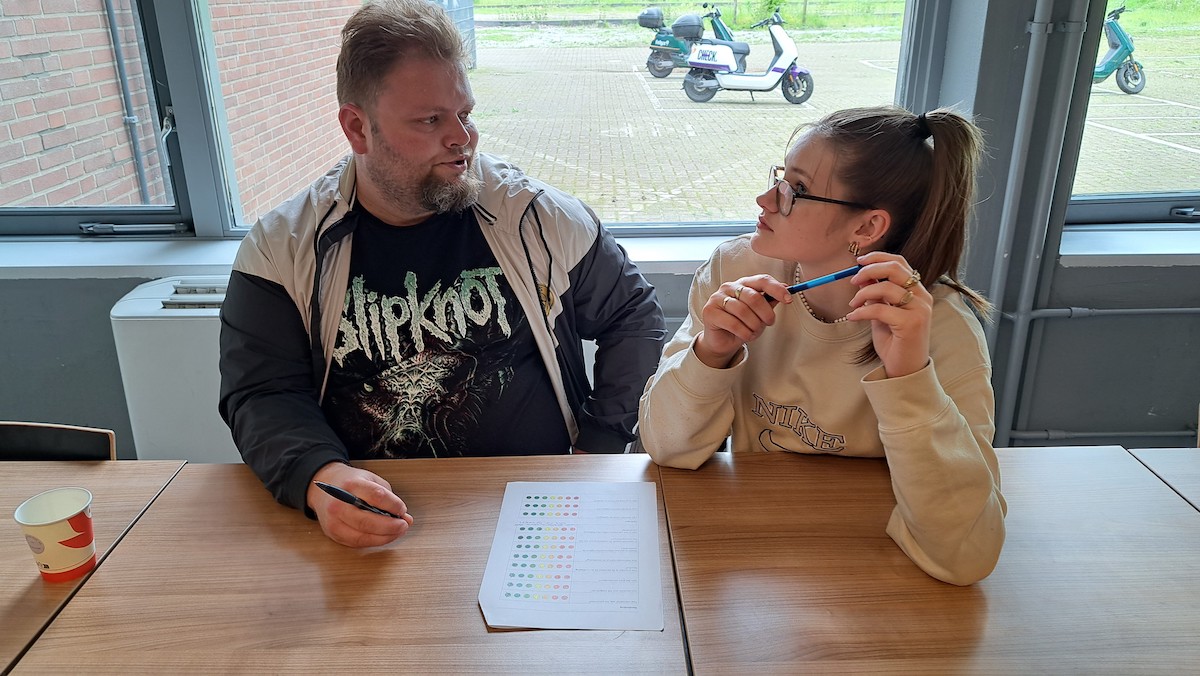
Taking it to the next level: training the lecturer
Earlier, we suggested that not just students, but lecturers too should learn about accessibility and inclusion through co-creative projects together with people with disabilities. Through exposure to situations of conflict and collaboration we learn how we can resolve differences of opinion between experience experts and students. How can we as lecturers respect the different, sometimes incompatible wants, needs, expectations, routines and working styles between students and experience experts? How can we make sure that the collaboration that emerges does not feel like an imperfect, unsatisfactory compromise, but represents a true way of optimising things, a way of interacting that makes things better for everyone - as is the aim of universal inclusive design? And if that does not always work - which is likely - how can we ensure that in every project, in every challenge, every single participant can honestly feel that something of value was co-created?
We can progress from sympathy to empathy to compassion.
How we as lecturers assess these projects is a key factor here. If a process or product is, at face value, flawed, but the mistakes that were made trigger a valuable development process in the student after the assignment deadline, how do we balance formative and summative assessment, and the formal educational need to gauge a student’s performance against particular standards? Do we have the right toolbox for reflection - to facilitate it in students, and in ourselves as educators? Can we place more value on making mistakes? How can we deal with overestimation of one’s own abilities, prejudices and blind spots in students, and ourselves? We should all be willing, ready and able to learn from each other - students, experience experts, lecturers, and, for good measure, leisure professionals too.
There is also room to improve content, such as simulation experiments. The Into D’Mentia VR simulator, for instance, provides an experience of the perspective of someone with Alzheimer's disease; the high level of immersion can help optimise education effects, even in the light of the limitations of empathy as noted before. And, interestingly in the light of that earlier discussion, the slogan of Into D’Mentia is ‘brings compassion to life’.
When we figure out how to do all this - a continuous process of trying, experimenting, failing at first but succeeding if we keep trying - we can progress from sympathy (feeling sorry for people who are disabled) to empathy (trying, but failing, to feel the same) to compassion (feeling along with each other, always making an effort to understand, and leveraging this willingness into the co-creation of solutions). Leisure professionals need that sensitivity, experience and insight to make leisure truly accessible and inclusive.
Sources
- Fink, L. D. (2013). Creating significant learning experiences: An integrated approach to designing college courses. John Wiley & Sons.
- Literature study: Rapport validisme tegengaan.pdf (movisie.nl)Tamara Keers, Hanneke Felten and Caroline Harnacke, 2021 Utrecht. To be downloaded via movisie.nl.
- Into D’Mentia: https://intodmentia.nl.
